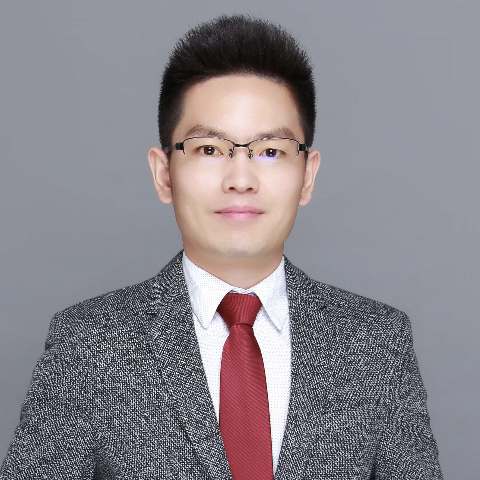Course Overview
Course Title: Low-carbon buildings and cities
Relevant SDGs: SDG 7, SDG 9, SDG13
Credit(s): 2 credits
Course Description:
Course: This course is a public elective course for all undergraduates.
Course Background: Global warming, air pollution, energy shortages and other major challenges are closely related to energy supply and demand in cities. The low-carbon transformation of cities is one of the key elements to solve these problems. The basic unit of low-carbon cities is the low-carbon sustainable building. As buildings account for 39% of global greenhouse gas emissions, reducing building carbon emissions is critical to achieving the Paris climate goals and global carbon neutrality. High-performance buildings, solar buildings, and smart buildings are important methods to achieve low-carbon buildings. In the process of continuous urbanization, the low-carbon transformation of urban infrastructure will significantly affect the city's carbon emissions, as well as the goal of carbon peaking and carbon neutrality implementation progress.
Main teaching content: Aiming at the key methods of low-carbon cities and their basic units of low-carbon buildings, the teaching content of the course mainly includes the basic theory and technology of building electrification, the basic theory and technology of building efficiency, and building intelligence, basic theory and technology of digitalization, basic theory and route of low-carbon city. These approaches can effectively reduce building carbon emissions and contribute to the realization of low-carbon cities using renewable energy, and low-carbon and recyclable building materials.
Course teaching objectives: Let students understand the construction methods to achieve carbon peaking and carbon neutrality, master the basic knowledge of artificial intelligence, building Internet, building digitalization, etc., and master the technology of building capacity control and reduction.
What skills will students get?
- Understand the basic theories and main methods involved in low-carbon buildings and cities, recognize the necessity of low-carbon transformation of the construction industry, and enhance professional knowledge and enthusiasm.
- Understand the mainstream technologies and methods of low-carbon buildings and cities, and be able to analyze the low-carbon technologies required by different building forms by using the materials inside and outside the classroom, and improve the comprehensive analysis ability.
- Establish a reliable and relatively complete theoretical and technical framework to analyze the low-carbon performance of buildings and judge the development direction of future buildings, with own analytical ability and correct value level.
Mode of Teaching
Lecture, Tutorial, Discussion, Homework, and Seminar.
Grading
- Attendance and homework: 30%
- Course project: 30%
- Report: 40%
Course-specific Restrictions
None.
Class Schedule
|
Week |
Date |
Week Day |
Time |
Topic |
Credit hours |
Teaching mode |
Instructor in charge |
|
1 |
2023.06.26 |
Monday |
17:00-19:40 |
Introduction to the low-carbon buildings and cities |
3 |
Lecture |
Jianhui, Jian, Paolo, Dingwen |
|
1 |
2023.06.28 |
Wednesday |
17:00-19:40 |
Green buildings |
3 |
Lecture, Tutorial |
Zhengyu, Jianhui |
|
1 |
2023.06.30 |
Friday |
17:00-19:40 |
Light and thermal performance of Buildings |
3 |
Lecture, Tutorial |
Dayi, Jianhui |
|
2 |
2023.07.03 |
Monday |
17:00-19:40 |
Sustainable stadium Buildings |
3 |
Lecture, Tutorial |
Qi, Jianhui |
|
2 |
2023.07.05 |
Wednesday |
17:00-19:40 |
Radiative cooling for low-carbon buildings |
3 |
Lecture, Discussion |
Xiao, Jianhui |
|
2 |
2023.07.07 |
Friday |
17:00-19:40 |
PV buildings |
3 |
Lecture, Tutorial |
Jianhui |
|
3 |
2023.07.10 |
Monday |
17:00-19:40 |
Lightweight buildings |
3 |
Lecture, Tutorial |
Jianhui, Paolo |
|
3 |
2023.07.12 |
Wednesday |
17:00-19:40 |
Sustainable cities |
3 |
Lecture, Discussion |
Xingxing, Jianhui |
|
3 |
2023.07.14 |
Friday |
17:00-19:40 |
Artificial Intelligence for buildings |
3 |
Lecture, Tutorial |
Jian, Dingwen |
|
4 |
2023.07.17 |
Monday |
17:00-19:40 |
Intelligent buildings and 3D printing |
3 |
Lecture, Tutorial |
Dingwen, Jian |
|
4 |
2023.07.19 |
Wednesday |
17:00-18:40 |
Summary of low-carbon buildings and cities |
2 |
Lecture, Tutorial |
Jianhui, Jian, Paolo, Dingwen |
|
Total |
32 |
|
|||||
Instructors

Jianhui Hu
Jian Yang

Paolo Beccarelli
Olga Sovoveva

Dingwen ‘Nic’ Bao
Course Contact
Jianhui Hu: j.hu@sjtu.edu.cn

